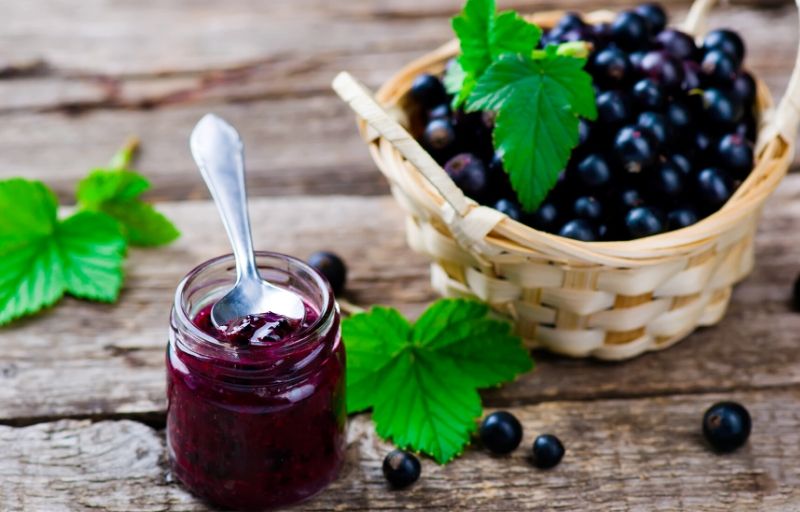Eating for the season: The summer edition
Sometimes it might not feel like it from the scene outside our windows, but we are officially in the summer months. So although the weather might be a little lacklustre, summer does bring a variety of ripe, plant-based goodies, bursting with seasonal nutrition.

Shopping for goods in season not only ensures you get the tastiest produce, but it’s also cheaper as farmers are able to harvest plenty of crops at one time, sending the cost down, plus, goods are generally more nutritionally dense. A study analysing broccoli’s vitamin C content, successfully determined that grown naturally in it’s favoured season, broccoli contained a significantly higher amount of vitamin C. This is the case for many seasonal veggies.
This practice, eating for the season, is actually an ancient Indian concept known as ritucharya, part of ayurvedic practice. It comprises a set of ideals on what can be eaten in different months based on availability, in order for your body to cope with the physical and mental threats such as disease, that can be apparent in changing seasons. It’s nothing new, but it’s relatively unheard of and brings a variety of benefits to your dinner table.
What’s in season in July and August?
Let’s adopt the ritucharya practise for eating in summer.
Blackcurrants
Blackcurrants are star berries, naturally rich in vitamin C – even containing more vitamin C than an orange – and possessing a high count of iron (20% of the recommended daily dose) plus vitamins A, B1, B5 and B6.
Dietitian Gillian Killiner says that blackcurrants are tasty-all rounders in providing a “multitude of nutrients to support our health.” She says, “Skip the macronutrients, as these are all about the micronutrients. Anthocyanins in blackcurrants are beneficial for anti-ageing, reducing the risk of neurological diseases, inflammation, and cancer. Blackcurrants have a high antioxidant content, the fourth-highest berry after chokeberries, elderberries and cranberries.
“They are also rich sources of vitamin C. Studies show vitamin C in fruit can fight against infectious diseases and remove free radicals from the body. Vitamin A is also present in small amounts and useful for eye health, skin and mucosal membranes, further protection against cancers of lungs and the oral cavity.”

A study by the James Hutton Institute determined that a daily dose of blackcurrants could significantly improve our gut health. With their purple power anthocyanins (a flavonoid that gives the fruit its colour) blackcurrants possess qualities that break down unhealthy bacteria in the gut, allowing beneficial bacteria to flourish.
Add a handful of blackberries to your morning yoghurt, blend them up for a delicious smoothie or cordial, or get creative and make your own blackcurrant jam!
Fennel
Part of the carrot family, this flowering plant is “a powerhouse of nutrition”, as Gilian puts it. With its versatile qualities, fennel can be used as a veggie, can be ground to make tea that aids healthy digestion or used as seeds to chew, and flavouring in curries, bread and drinks.
Gillian notes that fennel helps to regulate your blood pressure. “According to a study published in the Journal of Food Science, chewing fennel seeds helps increase nitrite content in saliva and helps control blood pressure. In India, it’s custom to chew fennel seeds after meals to facilitate digestion and remove bad odour.”
“Fennel can be useful for its calcium content to maintain bone strength and health; just one cup of fennel contains approximately 43 milligrams of calcium. It also contains magnesium, phosphorus, and vitamin K, which play a role in maintaining bone resistance.”
Also considered an anti-inflammatory due to its quercetin levels and variety of plant compounds, fennel extract can also be used to help manage chronic conditions, and as Gillian suggests, it even has cancer-fighting properties, due to its natural anethole content.
Asparagus
A quirky veggie jam-packed with nutrients for all-round good health, asparagus packs four essential vitamins, plus energy inducing magnesium and folic acid.
Eating asparagus promotes healthy bacteria in the large intestine and can help reduce bloating
“Asparagus contains vitamin A which protects eyes, skin and immune system, B vitamins that are helpful in metabolic health and is a rich source of vitamin C. “It also contains folic acid, which is important for making blood cells, but is an essential nutrient during pregnancy as it is needed for foetal development.”
Gillian also suggests that asparagus can be helpful if you have digestive issues, “Eating asparagus promotes healthy bacteria in the large intestine and can help reduce bloating.”
Asparagus can be enjoyed in a variety of ways: whether it’s boiling, steaming, frying or grilling, add some of these green goddesses to a frittata, sausage casserole or teriyaki salmon for a nutrient-boosting meal.

Other seasonal goodies
- Beetroot. High in fibre and with a reputation as an essential veggie for runners, beets have many health beneficial qualities including improvement of blood flow and lowering blood pressure.
- Courgette. This summer squash is naturally high in water content, alongside vitamin C and contains considerably high potassium levels, linked to lowering blood pressure.
- French beans. Containing no saturated fats, french beans offer up a variety of nutrients, including vitamins A, C and K plus are rich in folic acid.
- Raspberries. A juicy raspberry is a perfect addition to your morning yoghurt bowl or dessert. It’s the ideal berry for people who work outside as it’s known to protect skin from UV damage, plus has antioxidant qualities that help rejuvenate the skin.
- Cherries. The cherry is a sleep aid as it contains melatonin, the hormone that promotes good quality sleep. They are also alkaline by nature, so when ingested, they help to neutralise a build-up of any acidic qualities in the body and restore Ph balance.

Find a nutritionist dealing with Healthy eating
All nutrition professionals are verified





